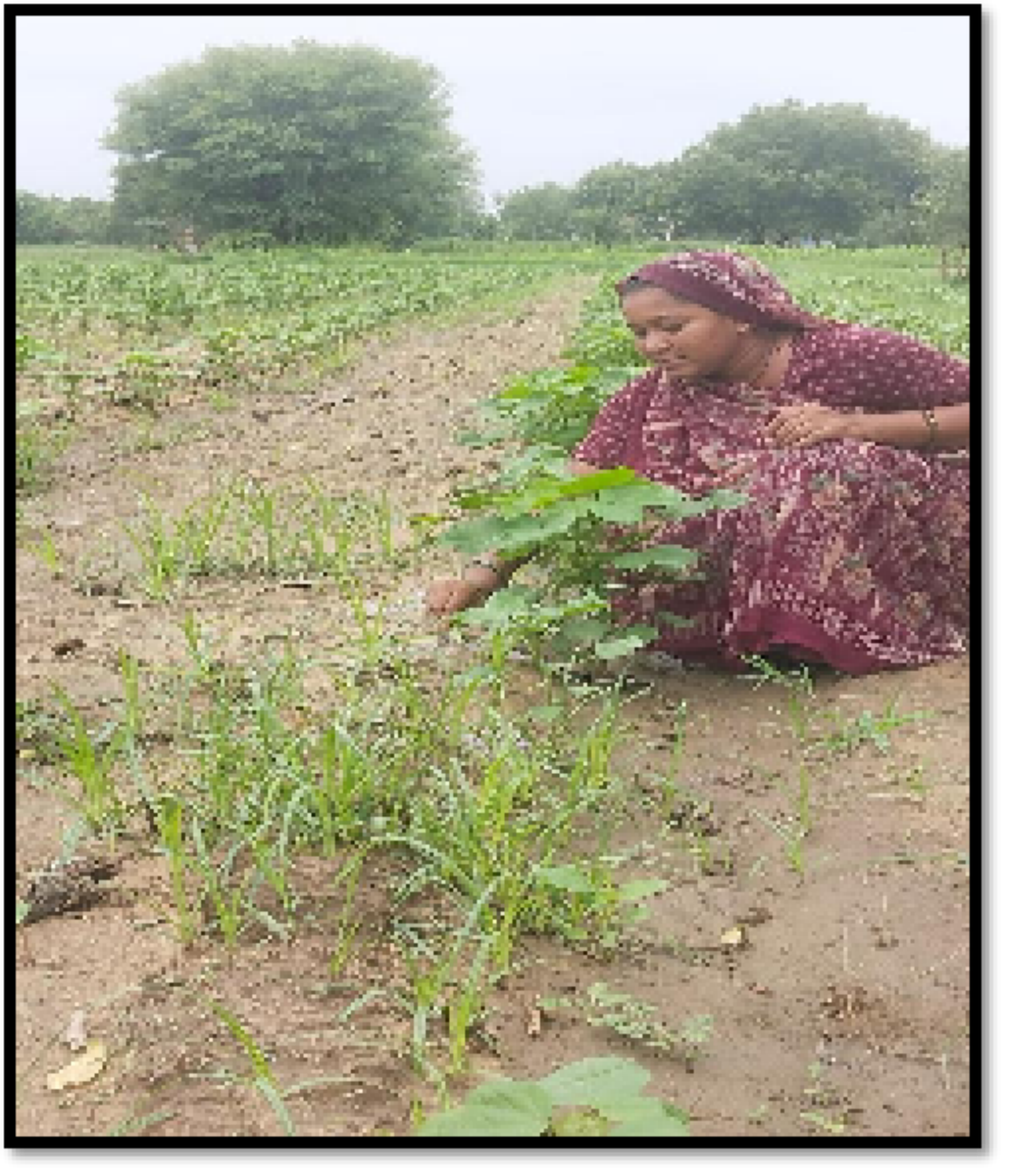In Adaraj village, Gandhinagar, Gujarat, India, Meghaben Ajay Bhai has transformed her farming practices through the Self-Employed Women’s Association (SEWA) with support from the APFP-FO4A program. Meghaben faced high input costs with limited returns, being previously dependent on chemical fertilizers and pesticides. However, after joining SEWA five years ago, she received training in sustainable and organic farming, leading to significant cost savings and increased crop yields.
Through SEWA’s training sessions, Meghaben adopted organic methods for wheat and castor cultivation. She replaced costly chemical fertilizers with vermicompost, which is produced using a vermicompost bed provided by SEWA. She also started applying jivamrut, a natural fertilizer, reducing the need for synthetic inputs. These changes resulted in lower expenses on fertilizers, pesticides, and seeds while improving soil fertility.
SEWA’s support also helped her access quality seeds from Bija Nigam, cutting seed costs from INR 3,000 to INR 2,000 (USD 35-23). By purchasing seeds through SEWA, she saved an additional INR 100-150 (USD 1-175) in transportation costs.

The impact of these interventions has been remarkable:
- Wheat production improved significantly in 2024.
- Castor yield increased from 10 maunds to 14 maunds, boosting income. With castor selling at INR 1,100-1,200 (USD 12-14) per 20 kilograms, this resulted in higher earnings.
- Cotton production rose to 20 maunds, fetching INR 1,400 (USD 16) per 20 kilograms.
- Additional farm income through animal husbandry, where Meghaben earns INR 6,000 (USD 70) per month from her cow and buffalo.
Overall, her total income from cotton and castor farming increased by INR 96,000 (USD 1,120), a significant financial boost.
To maximize her land use, Meghaben intercrops brinjal with castor and mung beans with cotton, ensuring food security for her family. She also grows hazarigal as a border crop in cotton fields. These practices not only enhance crop diversity but also minimize market dependency.
APFP-FO4A is implemented by the consortium Asian Farmers’ Association for Sustainable Rural Development (AFA) and La Via Campesina (LVC) and funded by the European Union and the International Fund for Agricultural Development (IFAD).

Comments are closed